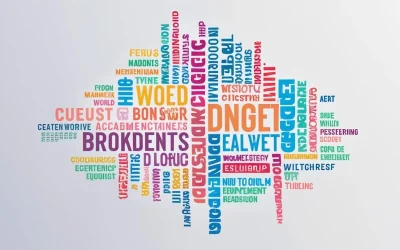The English language boasts an extensive vocabulary, estimated to comprise around 250,000 unique words, each with multiple distinct meanings. Nevertheless, the consensus among most English instructors is that gaining proficiency in the 3,000 most frequently used words in English equates to approximately 90 to 95% comprehension of English newspapers, literature, films, and dialogues.
Moreover, with a vocabulary of this magnitude, you’ll have the capacity to effortlessly acquire new words through contextual learning. The key lies in selecting the most relevant words to expedite your comprehension and avoid unnecessary time expenditure.
What is your English level?
Find out your A1 A2 B1 B2 C1 C2 level of English with our online test and receive your English certificate.
Learn the most common words first
Begin by mastering the most frequently used words. Prioritizing your English vocabulary study in this manner is highly effective. If you are a complete beginner, the provided links offer concise lists to kickstart your learning.
Utilize a dictionary or online resources to clarify the meanings of unfamiliar words. Whether in the form of paper-based or online flashcards, they remain one of the most efficient tools for acquiring new vocabulary. Consistent practice is the cornerstone of successfully memorizing English vocabulary.
Learn new vocabulary in a logical way
Once you’ve successfully tackled the shorter vocabulary lists, you can progress to the more extensive ones provided below. It’s essential to bear in mind that while a native English speaker may possess a vocabulary of 20,000 words or more, mastering just 3,000 words suffices to comprehend the majority of everyday English discourse and written material, provided you’re using an appropriate list.
These lists are meticulously curated based on word frequency, so you won’t encounter words like “tiger,” “skirt,” or “spaghetti,” which are common in beginner English lists but not particularly practical. To expedite and optimize your English learning process, prioritize the memorization of the most frequently used vocabulary, rather than a random assortment of words that are unlikely to find regular use.
Are you C1 Advanced English?
Get your C1 Advanced English certificate now!
✓ Add your certificate to your resume
⭐ ⭐ ⭐ ⭐ ⭐
I am Nilay, an experienced English Language Assessment Director at the International English Test, where I have been working full-time since February 2020. I specialize in helping people worldwide validate their English proficiency through comprehensive assessments and certifications.
Before joining the International English Test, I worked as a self-employed English Language Assessment Consultant from January 2015 to December 2019. During this time, I assisted companies and individuals in improving their language skills, helping them achieve their academic and professional goals.
I hold a degree in Engineering and have also studied at Shafston International College in Australia. My educational background has equipped me with the tools to make a meaningful impact in the field of English language learning. Additionally, I enjoy sharing my expertise through articles that explore effective teaching methods and language assessment strategies, contributing to the International English Test and the broader assessment community.





